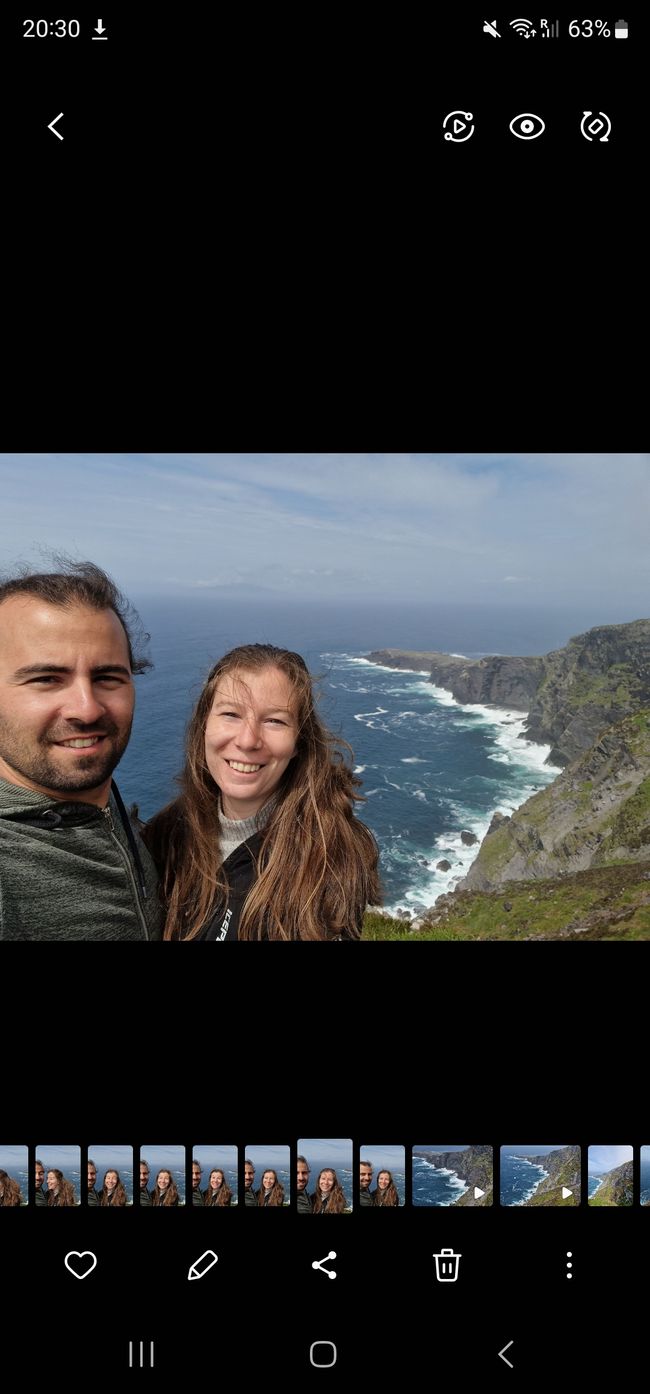Killarney National Park + Ring of Kerry
പ്രസിദ്ധീകരിച്ചു: 22.05.2023
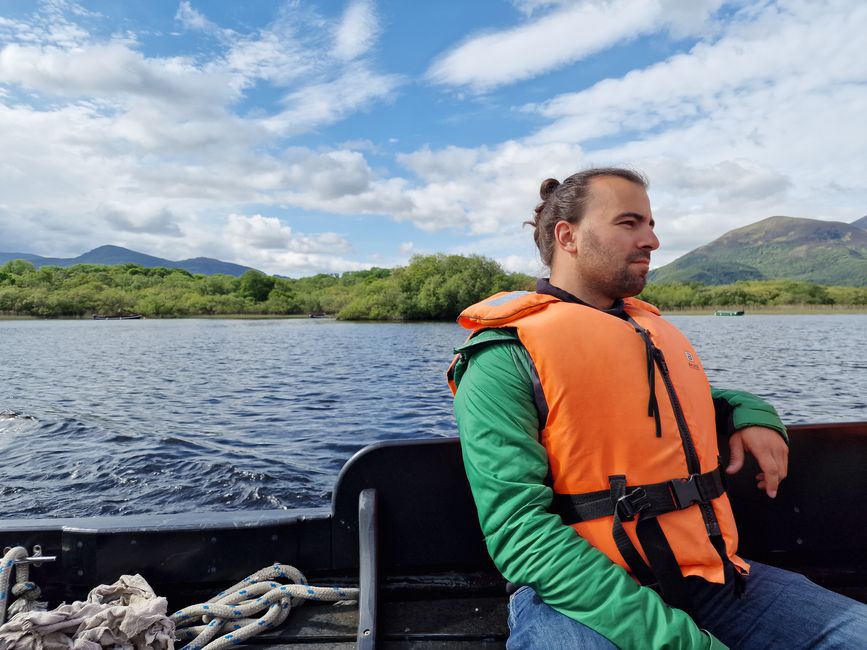
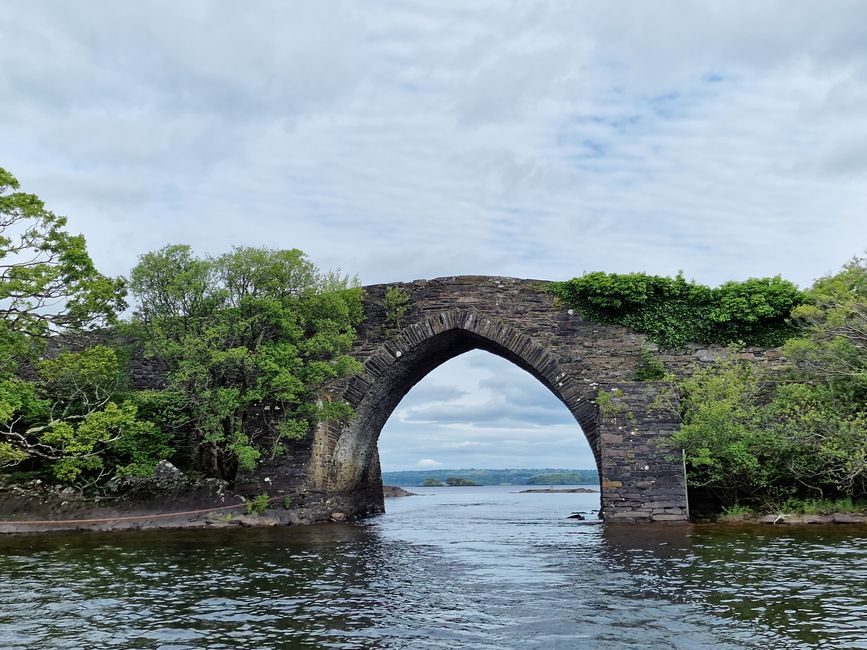
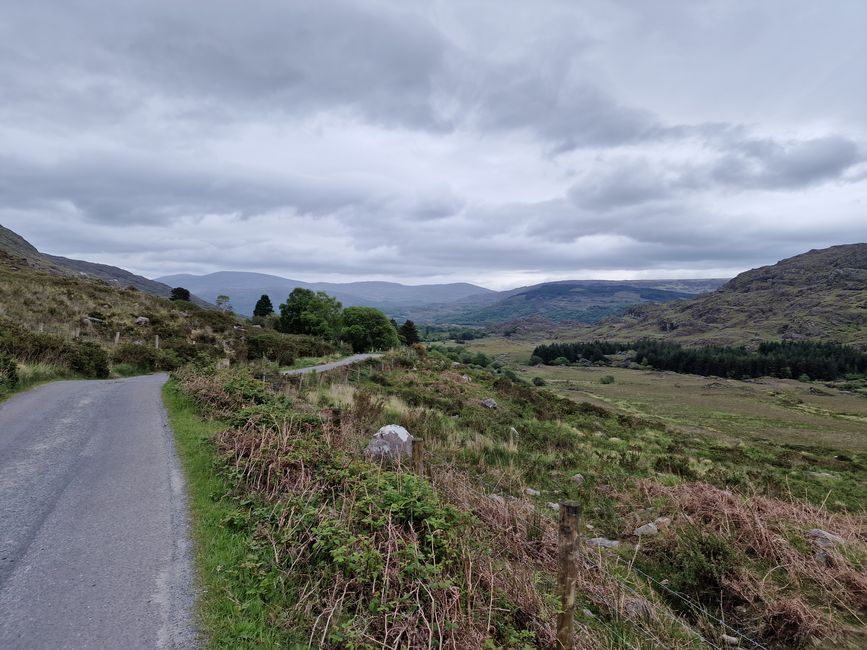
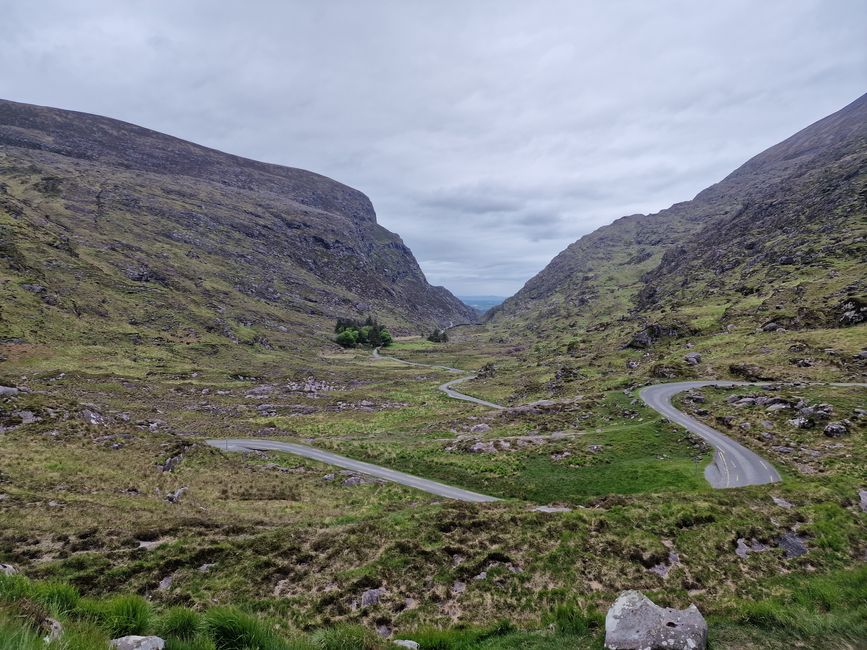
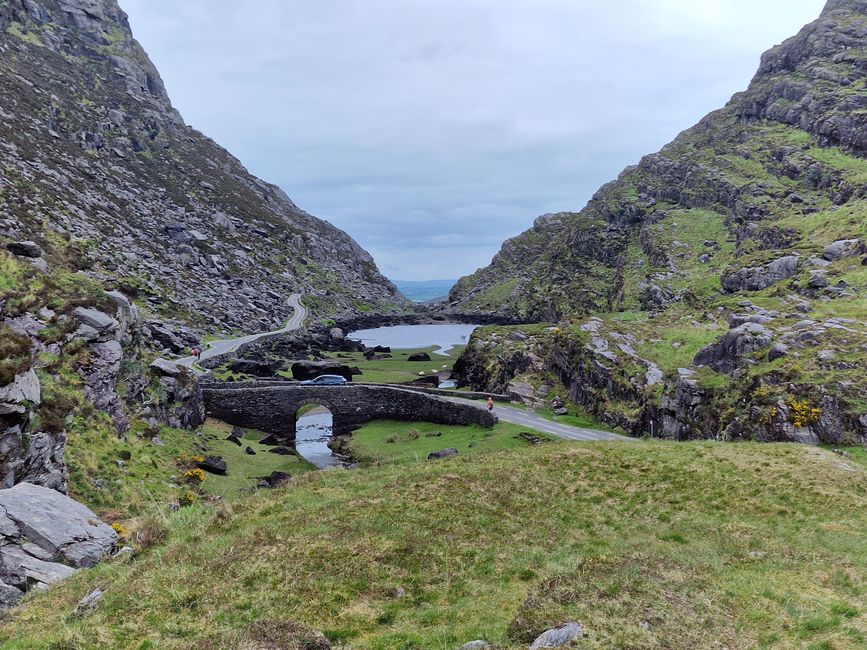
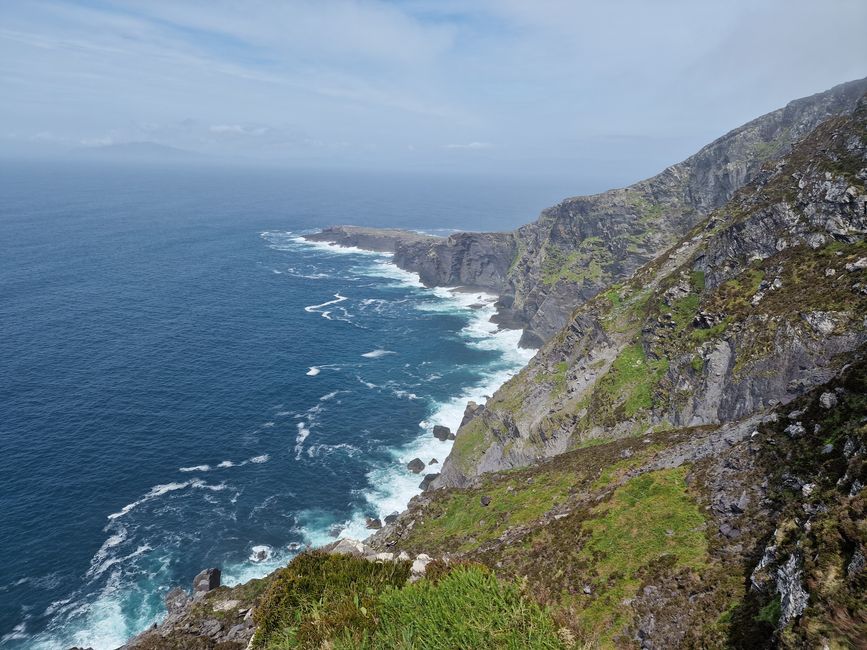
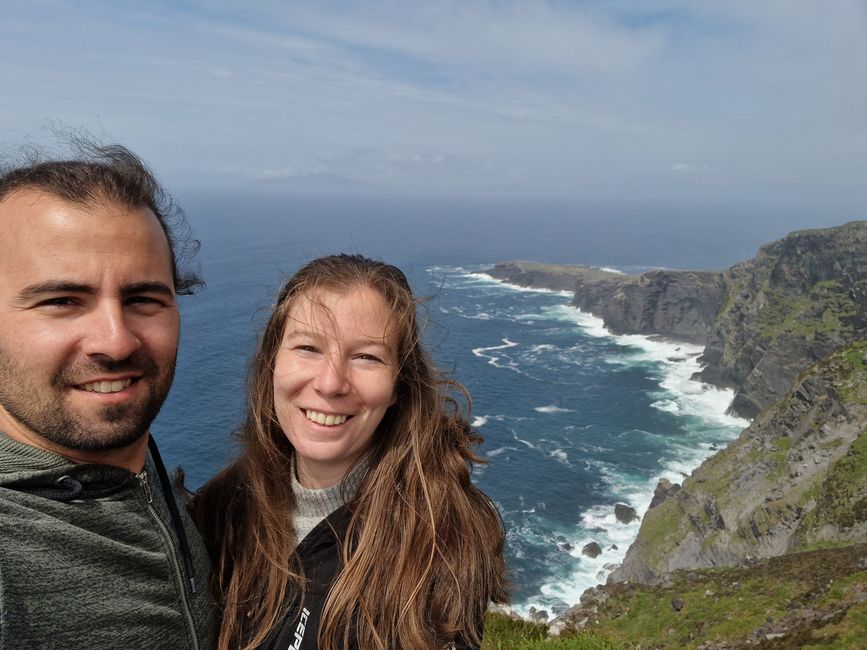
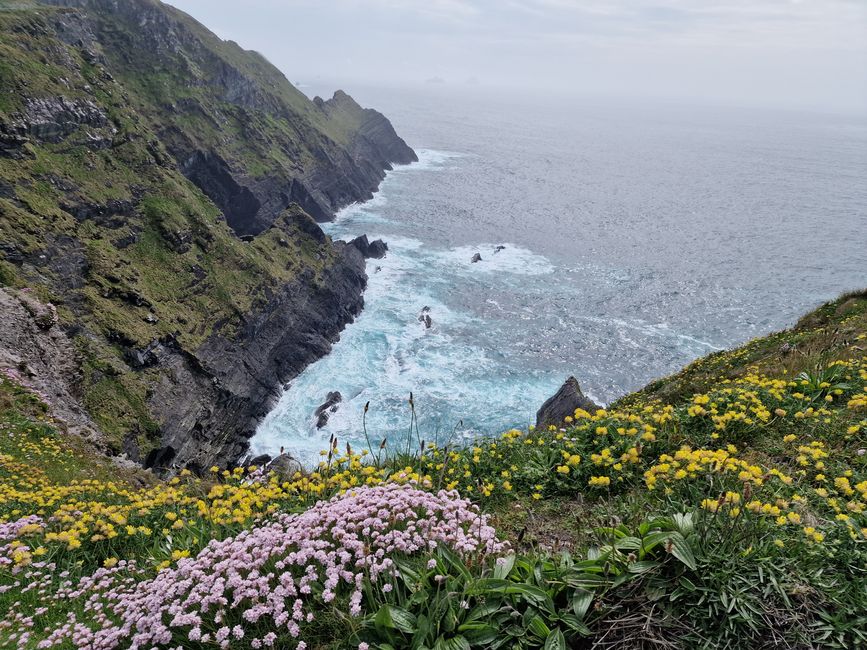
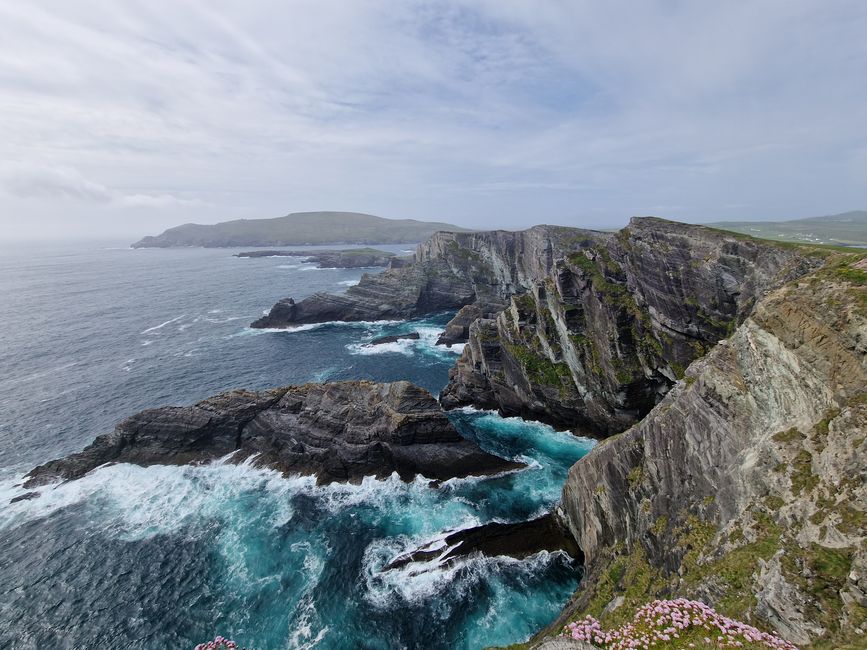
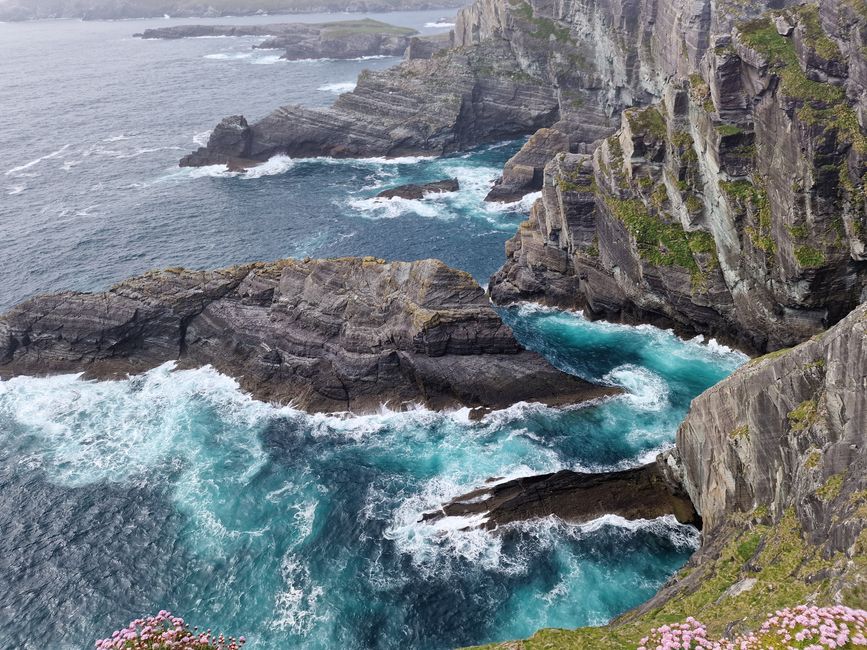
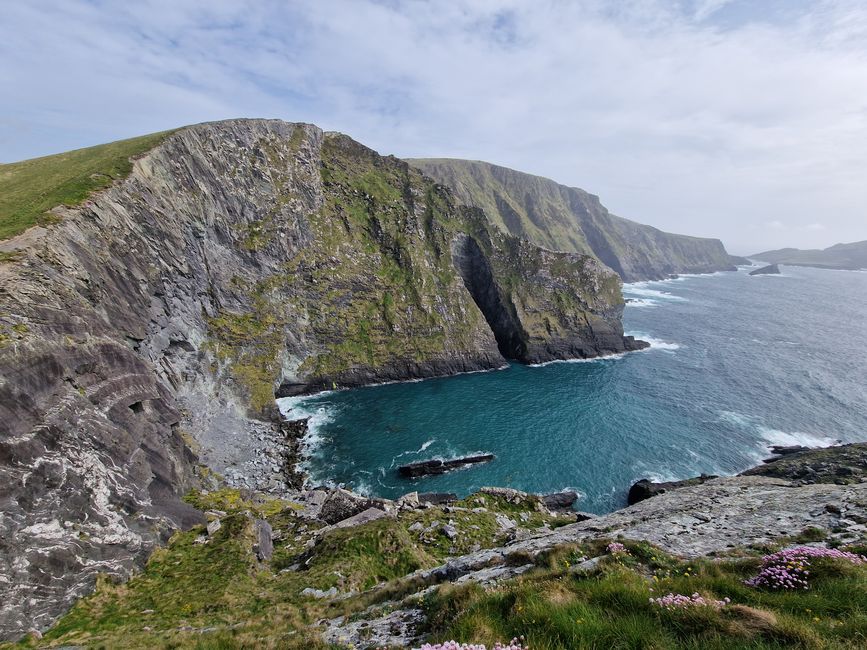
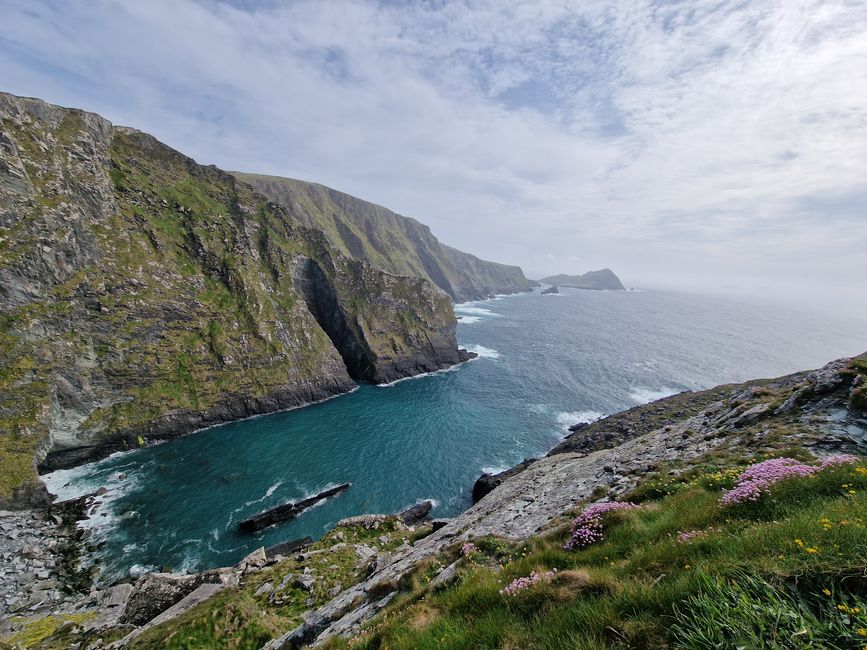
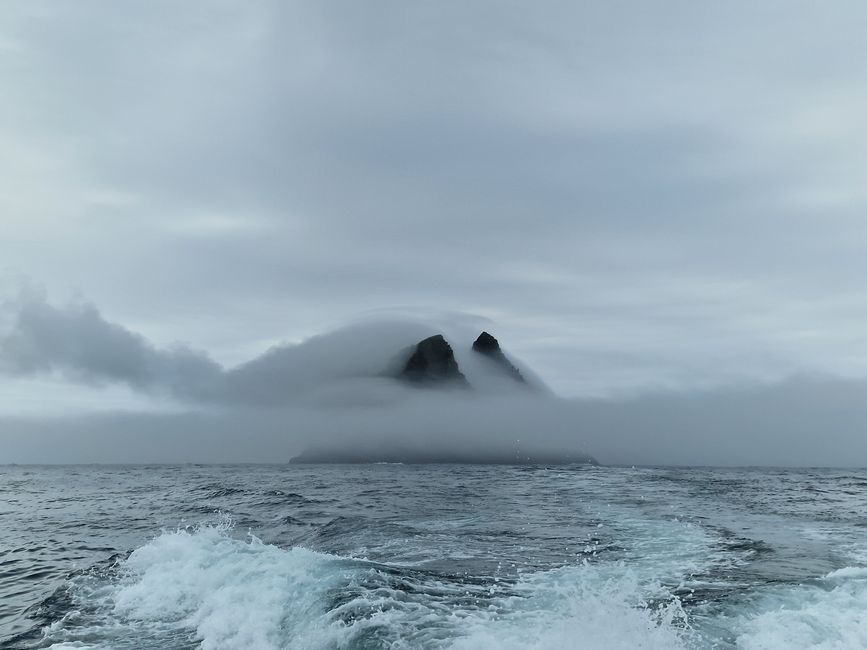
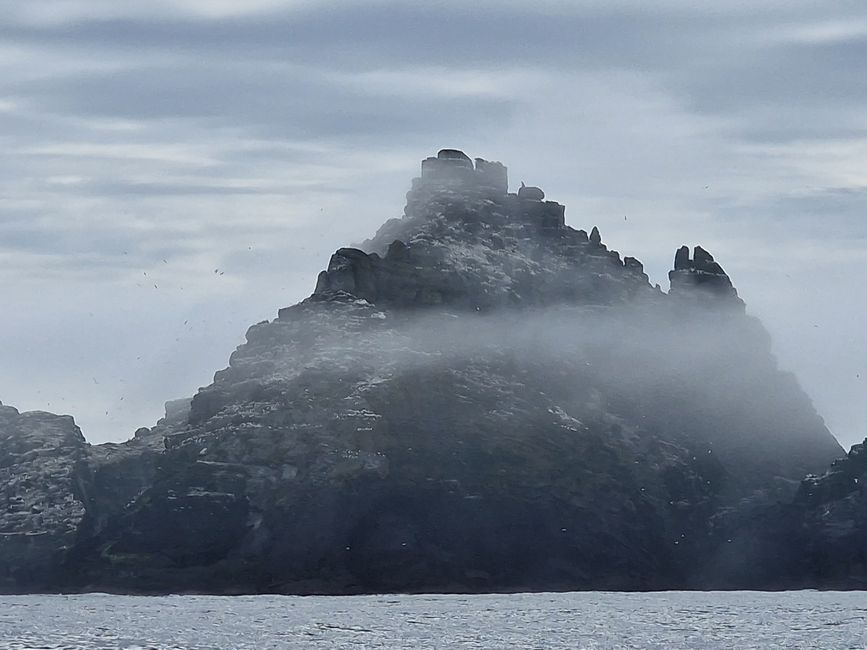
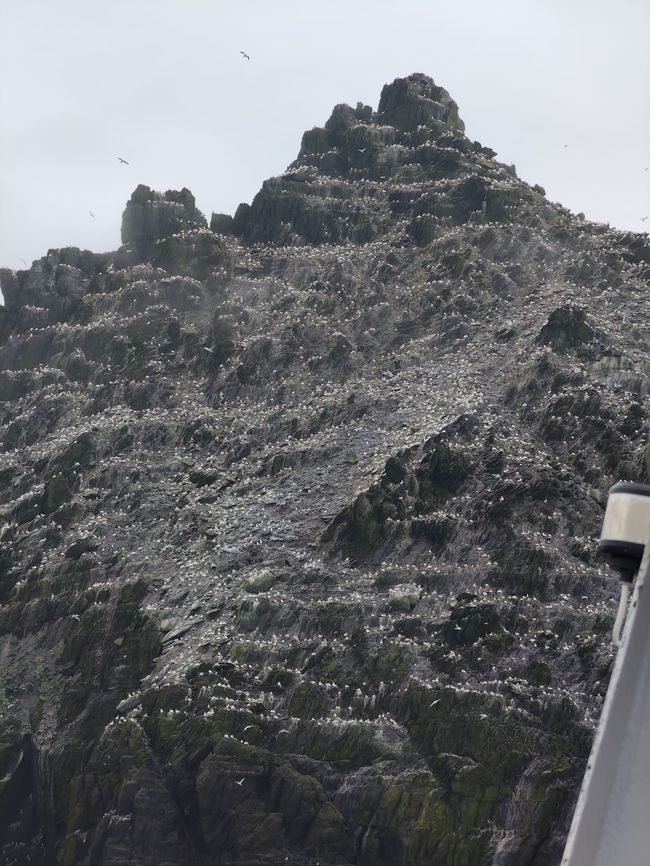
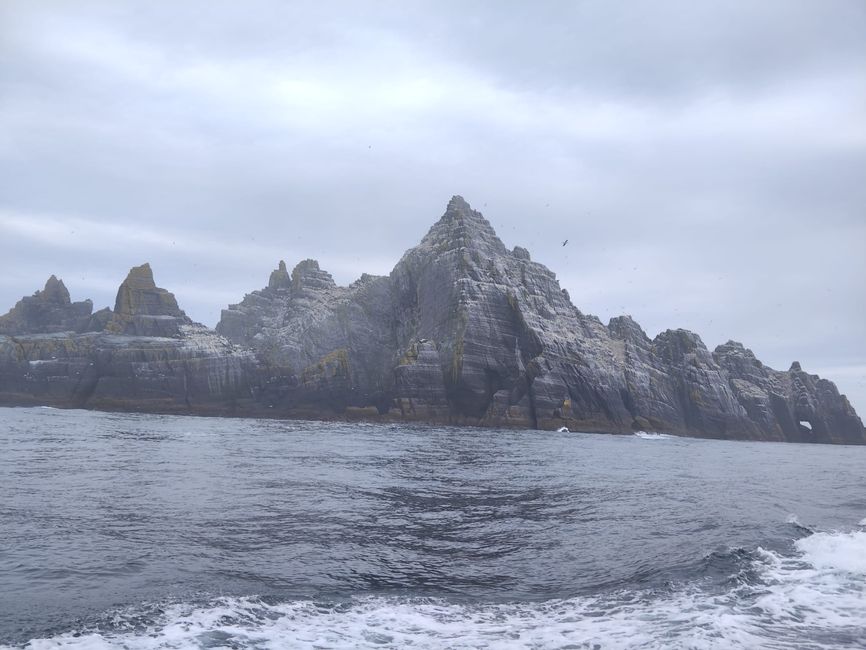
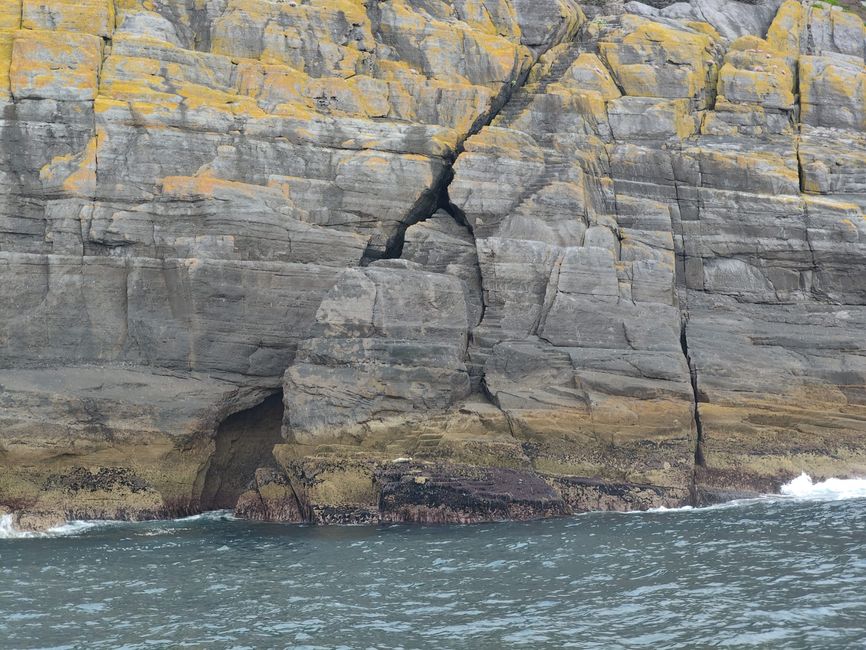
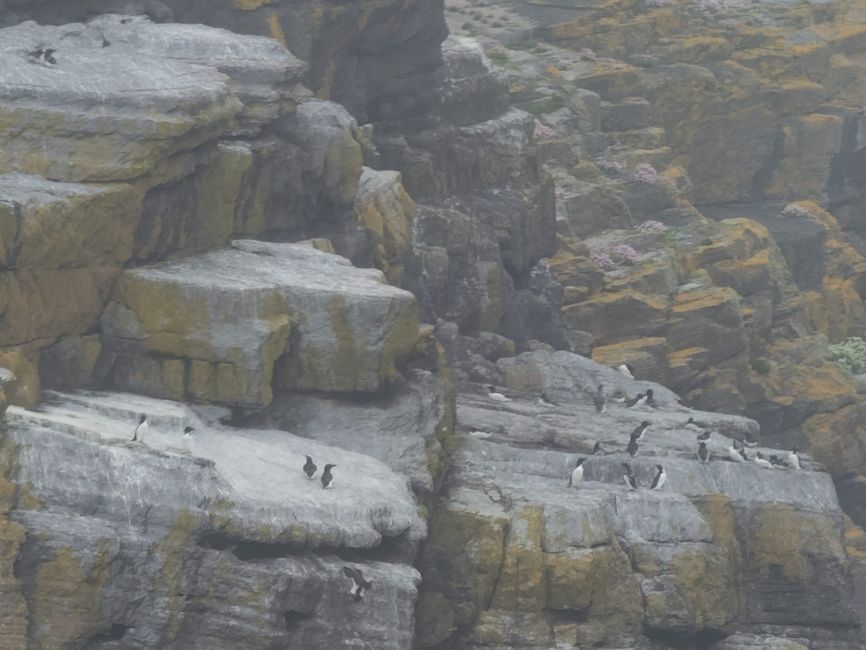
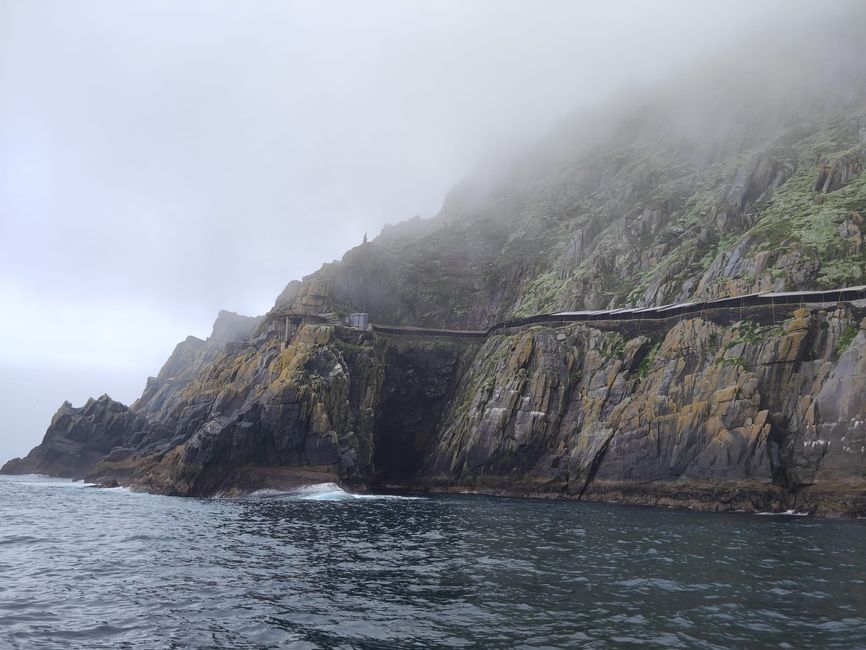
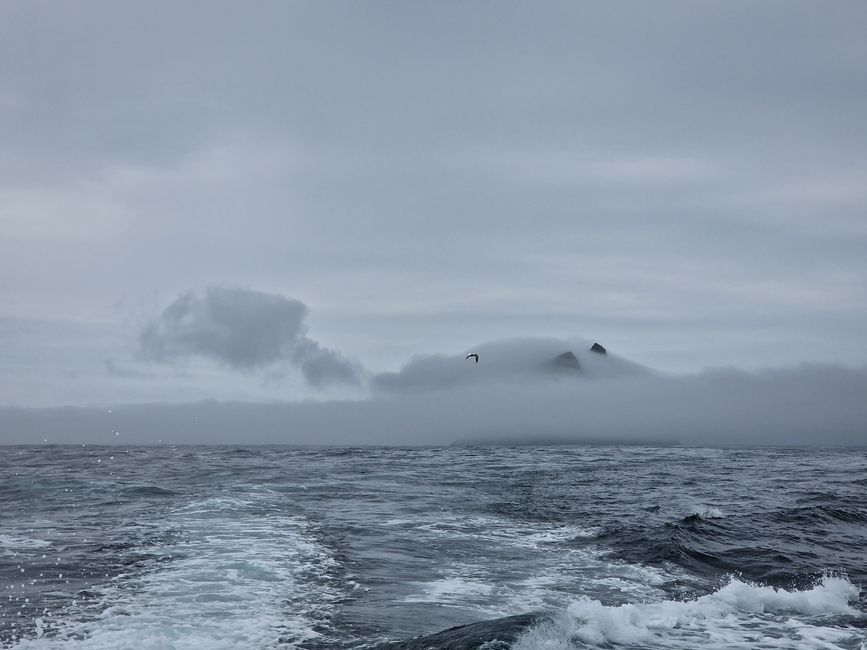
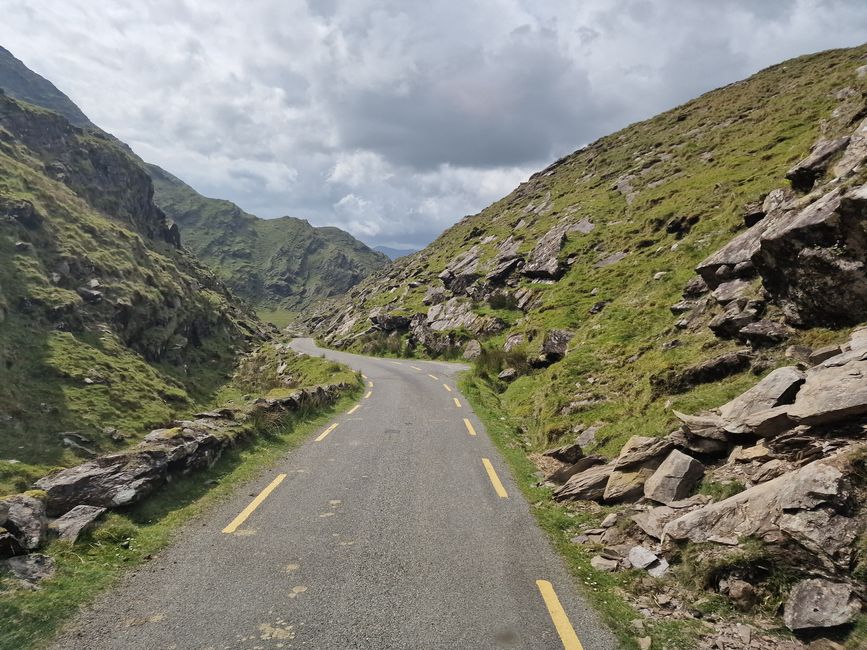
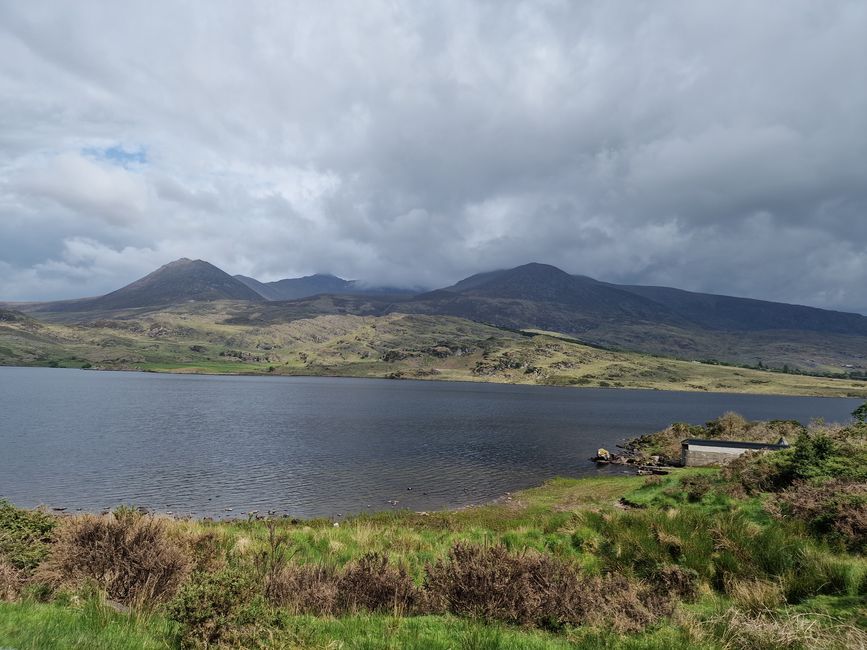
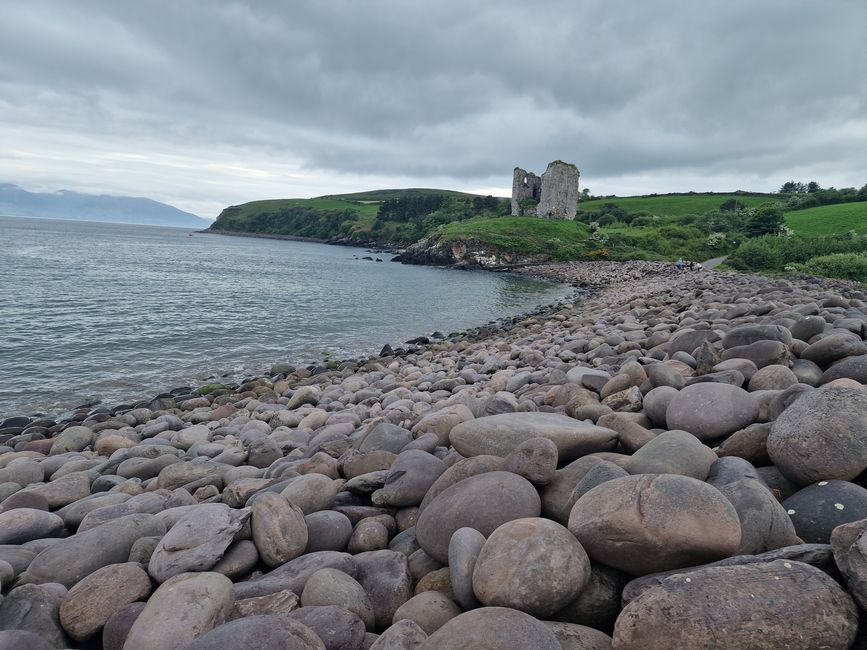
വാർത്താക്കുറിപ്പിലേക്ക് സബ്സ്ക്രൈബ് ചെയ്യുക
It's been a few days since the last entry and there's a lot to tell. So, there's a short version and a longer version for those who like it in more detail.
'Short':
Since the last entry, a few days have passed and there is a lot to tell. Therefore, there is a short version and a long version for those who prefer more details.
At our arrival in Killarney, we decided to book a day tour through a local tour operator. The tour consisted of a one-hour boat trip from Ross Castle, crossing two lakes and two rivers. After that, there was an option to either take a pony and carriage ride through the Gap of Dunloe Pass or hike it for 2.5 hours. We chose to hike the pass. At the end of the tour, we could enjoy coffee and cake, and then we were picked up by a small bus to return to Killarney.
Back at the campsite, we cooked dinner and then went to a pub in town for some live music.
The next day, our plan was to drive along the famous Ring of Kerry, a very popular route on the Wild Atlantic Way. We drove for about an hour to Valentia Island and visited a lookout point. Then we continued to the Kerry Cliffs, the most spectacular cliffs in County Kerry. There is a larger viewing platform on private land that offers an incredible view for a small fee. We were amazed by the steep cliffs and the crashing waves. The landowner also allows camping on the property, so we couldn't resist spending the night in such a stunning location.
On Saturday morning, we had the opportunity to take a boat tour to Skellig Michael Island, one of Ireland's UNESCO World Heritage Sites. However, all the boats were fully booked, so we decided to take a boat tour that only circled the island without landing. The sea was a bit rough, but it was an impressive experience to see the main island and the smaller island, Little Skellig, which is home to thousands of birds.
After the boat tour, we had a stomach-soothing lunch and continued driving along the Ring of Kerry in a southerly direction. We made a few stops to take pictures of the beautiful coastline and cliffs. In the town of Kenmare, we treated ourselves to something sweet before driving north on a narrow pass called Ballaghbeama Gap. Along the way, we could have seen Ireland's highest mountain, Carrantuohill, but it was covered in fog. We decided not to attempt the hike due to the weather forecast for the following day.
Now we are near Dingle, staying overnight in a secluded parking lot by the sea with two other unknown campers.
Long:
Since the last entry, a few days have passed and there is a lot to tell. Therefore, there is a short version and a long version for those who prefer more details.
When we arrived in Killarney, we decided to book a day tour through Dero's, a local tour operator. The tour started with a coach ride from Killarney to Dunloe Upper, the starting point of the Gap of Dunloe Pass. At Dunloe Upper, we had the option to either walk the pass or take a pony and carriage ride. After that, a boat trip of a little over an hour was planned from the Upper Lake, through two rivers, back to the larger lakes on the mainland. We were supposed to meet at Ross Castle at 10am, where the bus would pick us up. We arrived early and took the opportunity to admire the castle from the outside. However, the tour guide called us and informed us that the tour had to be reversed due to low water levels. So, we boarded the boats right away. The boat captain, Robbie, entertained us with interesting facts about the lakes. The first lake, Lough Leane, is the largest and deepest lake in the national park. About three years ago, a large man-made fire burned a significant area around the lakes, which was visible during the boat trip. We were surprised to learn that despite being in a national park, many activities are allowed, including boat tours, fishing, and even hunting (without shooting).
At the end of the boat trip, we enjoyed soup and rolls at a cabin and then started our walk through the Gap of Dunloe Pass. The walk takes about 2.5 hours and offers stunning views of the wild and rugged landscape. We encountered several carriages along the way, sometimes causing temporary traffic jams on the narrow road. We can only imagine how chaotic it must be during the high season with hikers, carriages, and motorhomes. We reached the summit of the pass, which offered a beautiful view of what was on the other side. Sheep freely grazed in this area, sometimes even standing on the road. We arrived at Dunloe Upper on time and had a coffee while waiting for our chauffeur. He arrived promptly, but some other hikers were delayed. They eventually caught up, except for a group of four, who we assume were left behind.
Back at the campsite, we cooked dinner and then went to a pub in Killarney called O'Connor’s Traditional Pub. While enjoying our beer and the live music, we couldn't help but check our phones to see how the Swiss Ice Hockey Team was doing at the World Cup.
The next day, our plan was to drive along the famous Ring of Kerry, a very touristy route on the Wild Atlantic Way. Based on a tip from Sarah's uncle, we decided to drive the peninsula counterclockwise to avoid driving against the flow of tour buses. So, we drove for about an hour to Valentia Island and visited a lookout point. There, we learned about the "Eighth Wonder of the World." From the main town of Knightstown, the first transatlantic telegraph cable was laid to Newfoundland in 1858. After visiting the island, we continued to the Kerry Cliffs, the most spectacular cliffs in County Kerry. The accessible viewing platforms are located on private land, where the landowner offers visitors an amazing view for a small fee. Sarah was particularly impressed by the steep cliffs and the crashing waves. Nature is indeed a powerful force, and it reminded us of the importance of taking care of the environment. We also learned that the landowner allows camping on the property for a fee of 20 euros per night. We couldn't pass up the opportunity to spend a night in such a spectacular location. Besides us, there was another camper, an Australian couple who have been traveling for over 2 years.
On Saturday morning, we woke up early with the hope of taking a boat tour to Skellig Michael Island, one of Ireland's UNESCO World Heritage Sites. However, all the boat tours were fully booked. We were advised to try our luck on the spot in case some passengers didn't show up. After a couple of unsuccessful attempts, we decided to take a boat tour that only circled the island without landing. The sea was a bit rough, but Lukas was fine while Sarah experienced some discomfort. The tour was still impressive, especially seeing Little Skellig Island, which appeared to be snow-covered from a distance but was actually covered in birds. There were an estimated 70,000 nests on the island, which means there were probably even more birds. The smaller birds, known as puffins, were particularly cute and their photos are worth looking up.
After returning to land, we had a calming lunch before continuing our drive along the Ring of Kerry in a southerly direction. We made a few stops to admire the beautiful coastline and smaller cliffs. When we arrived in the town of Kenmare, we treated ourselves to something sweet before embarking on another narrow pass called Ballaghbeama Gap. Here, too, we encountered sheep grazing by the side of the road. The road appeared to be suitable for racing, although we couldn't find any information on the internet. Nonetheless, we decided not to attempt hiking Ireland's highest mountain, Carrantuohill, as it was shrouded in fog.
Currently, we are near Dingle, spending the night in a secluded parking lot by the sea with two other unfamiliar campers. By the way, we find such parking spots using the Park4Night app, which provides useful information about the condition and accessibility of parking areas. It also informs us about any seasonal parking bans. Starting from Sunday, we will explore the Dingle Peninsula, even if the weather isn't great, and then continue our journey north along the Atlantic coast.
വാർത്താക്കുറിപ്പിലേക്ക് സബ്സ്ക്രൈബ് ചെയ്യുക
ഉത്തരം (3)
Brigid
Lovely stories and spectacular photosKäthle
super Bricht, heits witer gut und hwit gäng sorg. 💕 Liebe Gruess Mary
I did that boat trip on the Lakes of Killarney & walk back through the Gap of Dunloe, just making it in time to catch the bus back to the Killarney youth hostel from Kate Kearney’s Cottage. It was magical!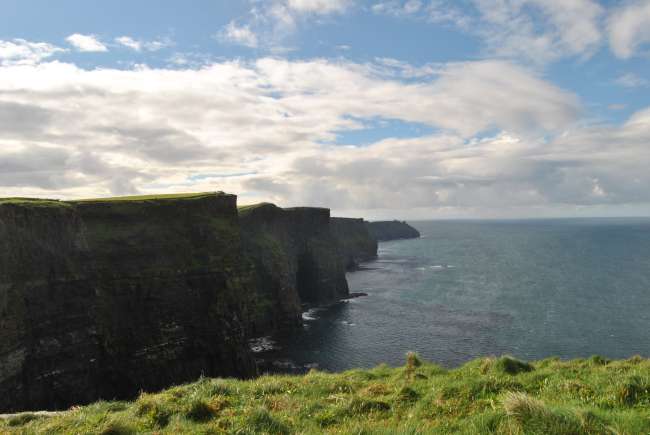
യാത്രാ റിപ്പോർട്ടുകൾ അയർലൻഡ്

